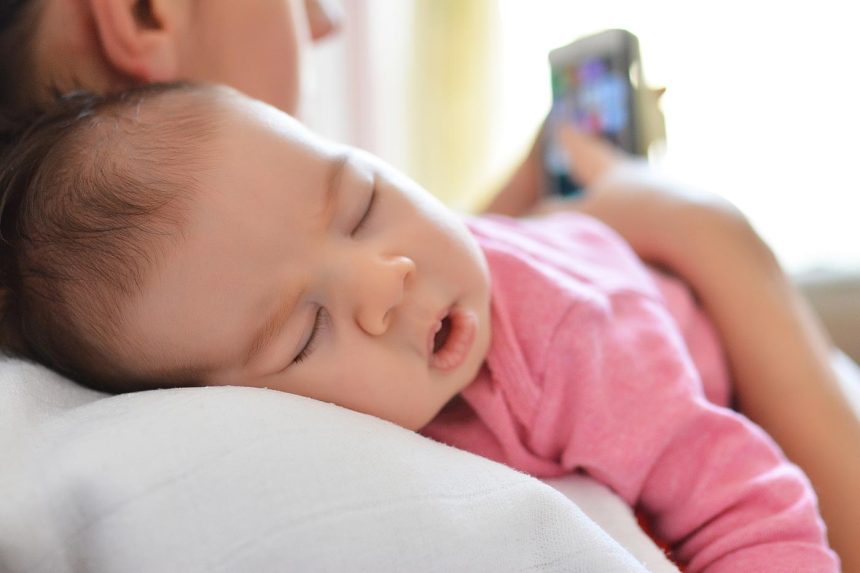In the serene chaos of new parenthood, every little detail of your baby’s routine becomes a point of focus. From diaper changes to feeding schedules, and yes—burping—the list feels endless. But what happens when your little one drifts off to dreamland without the customary burp? A wave of concern might wash over you, leading to questions: Is this normal? Should I wake them? Is my baby okay?
The art of burping is often celebrated as an essential ritual in the feeding process, meant not only to ease discomfort but also to ensure a satisfying feeding experience. Yet, in the hustle of late-night feedings and sleepy cuddles, it’s easy to wonder if missing a burp here and there is a cause for alarm or simply a part of your baby’s evolving journey. Join us as we delve into the nuances of infant digestion, explore the reasons behind those peaceful, burp-free slumbers, and help you determine whether this little oversight calls for concern or is just another footnote in the beautiful story of parenthood.
Understanding the Importance of Burping in Infants
Burping is a crucial part of an infant’s feeding routine, serving as a natural mechanism to release excess air trapped in their tiny stomachs. When a baby feeds, whether breast or bottle, they can inadvertently swallow air along with their milk. This can lead to discomfort, fussiness, or even spitting up if not addressed. It’s vital to note that burping helps prevent colic and ensures that the baby remains comfortable during and after meals. Key reasons why burping is important include:
-
- Reduces Discomfort: Helps alleviate gas pressure in the stomach.
-
- Minimizes Spitting Up: Reduces the likelihood of your baby spitting up after feeding.
-
- Promotes Better Sleep: A burped baby is often a happier, more comfortable baby who can sleep soundly.
However, if your little one falls asleep without being burped, it isn’t always a cause for concern. Many infants can sleep quietly even if they have some air in their stomachs, and they may naturally burp while drifting into a deeper sleep. Monitoring your baby for signs of discomfort after waking can be beneficial. If frequent burping becomes a nightly challenge, consider trying different burping techniques or positions to find what works best for your child. Here are some quick tips:
| Burping Position | Description |
|---|---|
| Over the Shoulder | Hold your baby against your shoulder, gently patting their back. |
| Sitting Up | Sit your baby on your lap, supporting their chin and back while gently rubbing the back. |
| Face Down on Lap | Lay your baby face down on your thigh, securely holding them while patting their back. |
Signs That Your Baby Is Comfortable After Feeding
After feeding, observing your baby’s demeanor can provide significant insights into their comfort level. A relaxed baby often exhibits certain indicators, letting you know that they are content and satisfied. Look out for signs such as:
-
- Soft facial expressions – A calm and serene face indicates relaxation.
-
- Slow, rhythmic breathing – Gentle breaths suggest a tranquil state.
-
- Fingertips or toes flexing – This can be a way of settling into comfort.
-
- Loose fists or open hands – Tension in little limbs is a sign of discomfort.
-
- Quiet coos or sighs – Soft sounds can indicate pleasure and relaxation.
Additionally, your baby’s posture can also reveal their comfort level. When they are relaxed after a feeding, you might notice:
| Posture | Indication |
|---|---|
| Body relaxed | Feeling at ease and happy |
| Leaning against you | Seeking comfort and closeness |
| Falling asleep | Very content with feeding |
Recognizing these cues can reassure you that your little one is comfortable and has transitioned well into post-feeding relaxation. Celebrate these moments, as they signify a happy and healthy feeding experience.
What to Do If Your Baby Falls Asleep Without Burping
While it can be concerning to see your little one dozing off without a burp, it’s usually not a cause for alarm. Babies often find their own rhythm and may not always require burping after every feeding, especially if they show signs of comfort and relaxation. Instead of worrying, the focus should be on observing their overall well-being. Here are some considerations to keep in mind:
-
- Monitor Comfort: If your baby seems content and doesn’t show signs of discomfort, it’s likely they’re fine.
-
- Feeding Position: Ensure that the feeding position was optimal, as it can influence how much air is swallowed.
-
- Frequency of Feedings: Regularly feeding your baby can reduce the likelihood of excessive gas buildup, making burping less critical.
However, it can still be beneficial to gently encourage burping even after they’ve fallen asleep. Try the following techniques to help release any trapped air:
-
- Upright Position: Hold your baby upright against your chest and gently pat or rub their back.
-
- Over-the-Shoulder Technique: Lay your baby over your shoulder and give them a few supportive pats.
-
- Sitting on Your Lap: Place your baby on your lap, supporting their chin and gently leaning them forward.
If you notice any signs of discomfort or excessive fussiness later on, it might still be worth attempting to burp them, even if it’s a few hours post-feeding.
When to Consult a Pediatrician About Feeding Concerns
If you find yourself frequently worrying about your baby’s feeding habits, particularly after they fall asleep without burping, it might be time to seek professional advice. There are specific signs you should look for that indicate a consultation with a pediatrician is warranted. Consider reaching out if your baby exhibits any of the following symptoms:
-
- Excessive fussiness: If your baby seems more irritable than usual, especially after feeding.
-
- Frequent spit-up or vomiting: If spitting up occurs regularly and seems to distress your child.
-
- Changes in feeding patterns: If your baby suddenly refuses to eat or shows a marked decrease in appetite.
-
- Signs of discomfort: If your baby appears to be in pain, arching their back or clenching their fists after feeding.
-
- Slow weight gain: If there are concerns about your baby’s growth and they are not gaining weight as expected.
Keep in mind, each baby is unique, and understanding their individual feeding needs and behaviors is key. Discussing your observations with a pediatrician can help clarify what is normal and what may require closer attention. It’s particularly important to communicate if:
| Concern | Possible Implication |
|---|---|
| Frequent crying after meals | Possible digestive issues or allergies |
| Inconsistent feeding cues | Potential feeding difficulties |
| Overly sleepy after feeds | Could indicate metabolic or health problems |
Q&A
Q&A: Baby Fell Asleep Without Burping: Should You Worry?
Q1: Is it common for babies to fall asleep without being burped?
A1: Yes, it’s quite common. Babies can sometimes drift off to sleep during feeding, and it’s not unusual for them to skip the burping process. This can happen if they’re particularly tired or if they’ve consumed a comforting meal.
Q2: What are the risks of a baby not being burped after a feeding?
A2: The main concern is that trapped air in a baby’s stomach can lead to discomfort or gas. In some cases, this can result in fussiness or excessive crying when the baby wakes up. However, most babies are able to manage a little air without any serious issues.
Q3: What should I do if my baby falls asleep without burping?
A3: If your baby falls asleep without burping, try to gently place them in a safe sleeping position. You can also consider waking them briefly to see if they’ll burp—sometimes a gentle pat on the back or changing positions can help release any trapped air.
Q4: Are there certain feeding positions that can help reduce the need for burping?
A4: Absolutely! Feeding your baby in a more upright position can minimize the amount of air they swallow, which may reduce the need for burping afterwards. Experimenting with different positions can also help you find what’s most comfortable for both you and your baby.
Q5: How can I tell if my baby is uncomfortable due to not being burped?
A5: Signs of discomfort in a baby may include fussiness, squirming, arching the back, or crying after waking. If you notice any of these behaviors, it might be a good idea to try burping them or comforting them to relieve any possible discomfort.
Q6: When should I be concerned about my baby’s burping habits?
A6: If your baby consistently shows signs of extreme discomfort after feeding, or if they are excessively gassy or fussy, it might be worth discussing with your pediatrician. Occasional skipped burps are usually nothing to worry about, but persistent issues should be assessed by a professional.
Q7: Are there specific techniques that help with burping?
A7: Yes! Common techniques include holding your baby against your shoulder and gently patting or rubbing their back, or cradling them on your lap and supporting their chin while you rub their back. Experimenting with different techniques can help you find what works best for your little one.
Q8: should I worry if my baby falls asleep without burping?
A8: Generally, there’s no need for concern. Babies are quite resilient, and many manage perfectly well even if they haven’t been burped. However, staying attentive to your baby’s cues and comfort can help you navigate their feeding and sleeping patterns with confidence.
To Conclude
As we navigate the ever-evolving journey of parenthood, the myriad of worries can feel overwhelming. One such dilemma is whether a baby falling asleep without a burp is a cause for concern. While it’s natural to be apprehensive about your little one’s well-being, it’s important to remember that each child is unique and experiences their own variations of comfort and digestion.
trust your instincts and observe your baby’s cues. If they are content, breathing normally, and settling into a peaceful slumber, it’s likely that they’ve simply found their own rhythm. However, if you ever feel uncertain, consulting with a pediatrician can provide peace of mind and reassurance.
As you continue to embrace the beautiful chaos of parenting, keep in mind that every small moment—whether it involves a burp or not—plays a significant role in the precious tapestry of your baby’s early life. Your attentiveness and love are the greatest gifts you can offer, creating a secure environment where they can thrive. So rest easy, knowing that sometimes, a baby simply needs to sleep.


